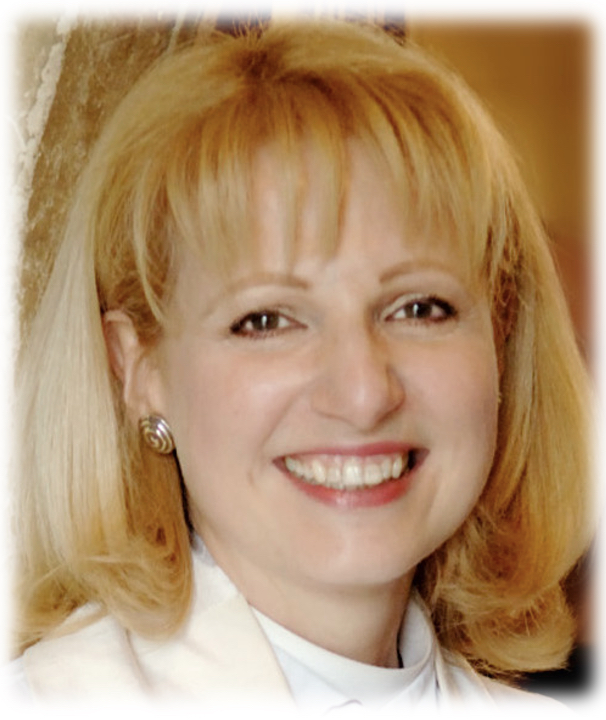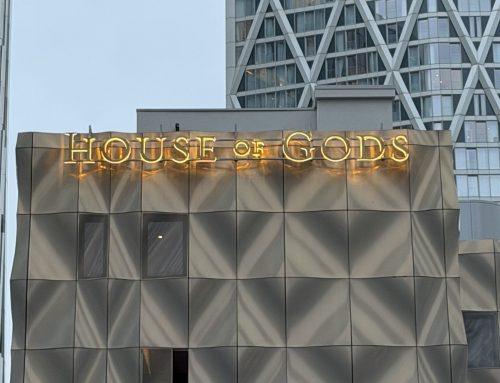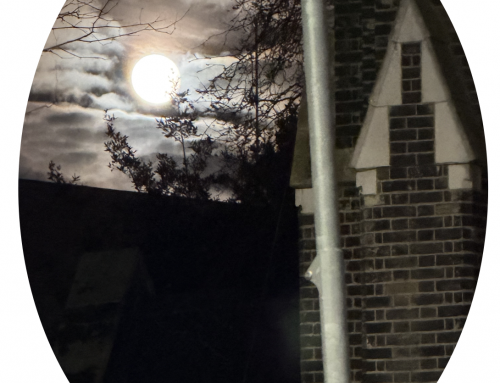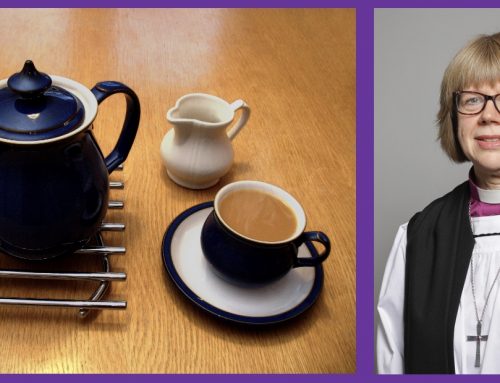Did we die without noticing it?

Canon Rosie Harper studied at Birmingham University, followed by post-graduate studies at the Royal Academy of Music. She has worked as a professional singer. Further studies included an MA in Philosophy and Religion. Rosie was Vicar of Great Missenden, and is now Chaplain to the Bishop of Buckingham. A member of General Synod from 2010-202, Rosie writes for the Guardian, broadcasts regularly, and has been a panel member for the BBC radio programme ‘Any Questions.’ Her recent book written with Alan Wilson ‘To heal and not to hurt’ addresses the issue of the Church’s response to abuse. She is deeply committed to working for issues of justice and equality within and beyond the Church.
Did we die without noticing it?
When I was a teenager growing up in Norwich, prayer meetings were a very significant part of life. Looking back, I wish I’d spent more time with boys and less time in my non-conformist church. It’s a bit late now! Even at the time I realised that those meetings revealed far more about what folk really believed than the fine Sunday words. People prayed about what mattered to them. They were a lovely bunch, mostly, and talked to God about the people they loved, about missionaries in far flung countries, about homeless people. The prayers were also sometimes unknowingly racist and sexist.
A very common theme was revival. By this they meant not so much that the power of the spirit would sweep across the country, rather that there would be revival in the Church of England. It was impossible for them to conceive of an authentic church that ran on different software from theirs. Jesus Christ as your personal Lord and Saviour was the bottom line and with it came the whole substitutionary atonement script.
In the fullness of time, I made my escape into the arms of the Established Church. What I found was firstly beauty. The architecture, the music and the glorious diversity of perspective. I felt I’d found freedom. I also loved the parish concept. The church was there for the whole community not just the true believers. This was a place where I could breathe and think and pray. Doubt was an acceptable dynamic of faith and philosophy was not scorned.
That was 35 years ago. I don’t feel that way today. Over those years I have seen the Church of England gradually turn into a version of the church I had escaped from. As it did so it squandered its riches. Not so much financially, although that is probably also true, but sociologically.
As the numbers fell so did the outward looking desire to be a relevant Christian presence in the community and in the country. The positioning became defensive and this was seen by society as bitter old white men trying to hold back social progress. Ancient prejudices which most people in the country had named and rejected were still legitimised within the church. I know there is still sexism and homophobia all over the place, but it is not still legitimate within the structures of any other institution. Getting married to a person of the same sex is now thankfully perfectly legal in this country. If you do that as a priest in the Church of England, you’ll never get another job, or indeed be allowed to act as a priest in your retirement. When I speak to young people in schools about this, they think such a policy is disgusting. At interfaith days at high schools, which are always fascinating and stimulating, I am without fail asked how I can bear to stay in such a Church? It’s not an easy question to answer. We have amputated ourselves from the moral heartbeat of the country.
The problems mount up and the damage is exponential – like compound interest. Most minorities don’t feel fully included. The record on safeguarding is a horror show, with so many fine words and so many new rules and systems and so little real change and so little redress. There is no engagement with the fact that almost 90% of our citizens wish for some measure of control over the manner of their death. These are all issues that are matters of conscience for so many, and they feel alienated from a disapproving Church. Add to this the struggle disabled people have to get full physical and emotional access and the inadequate numbers of lay and ordained leaders from ethnic minorities. For a Church with dwindling numbers, it seems mad that there are so many ways to be excluded.
Of course, if you are an insider, you will have lots of good stories to tell. Warm, loving and supportive communities, important stuff such as Food Banks having great church support, exciting eco ventures, beautiful and creative liturgy. For others it’s all about fabulous sermons and a heady worship vibe.
It seems however that access to this good stuff has become harder. The doorstep into our Church of England communities used to be low … just turn up, you belong by being there. Almost imperceptibly that has changed. The squeeze begins. It’s better to be regular. If you are serious about your faith then your giving will be sacrificial. Then you find that the true believer needs to sign up to a series of supra-creedal articles of faith. Funny how that begins to sound more like a denomination or even a sect than the National Church.
We are told that this is the only way forward. This way of being church is the best. They are full and the others are almost empty. Look at the evidence. If we want to be here in ten years’ time, this is the way. It’s the shape of things to come.
And yes, there are quite a few moderate sized churches like that. Shame they have sucked the life out of their neighbours, and shame that they are often shrinking faster than they admit. There is a limit to how much homophobic and sexist nonsense people will take, especially from a heroic leader. It’s time to admit, before we commit any more of the CofE’s crown jewels to this project, that the primary HTB model we are working with puts off as many people as it attracts. As the ‘Save the Parish’ movement, for all its flaws rightly emphasises, there is glory in diversity, and in small as well as large.
Thankfully, though things look rough, we have the everlasting arms of the Established Church to faint into. Surely this has never looked so secure? We are still at the very heart of our nation. When the Queen died, we were there. The huge state funeral with all its pomp and tradition was watched by half the world. The music, the processions, the liturgy, the dressing up. In the midst of political mayhem, we still knew what it was to be British and Christian. The faith of the Queen was celebrated and articulated in an overt way, a way that she didn’t choose in her life.
On closer examination it could be that all is not that well. It’s such a time of flux. We can’t see yet how the death of Elizabeth II will impact the C of E or how the King will take things forward. The very appealing modest and quiet faith of the Queen felt very safe. There are matters that no-one wanted to air out of respect for her but that will change. In the same way as anti-monarchy sentiment was controlled for a suitable period, so the position of the C of E probably won’t be challenged until after the coronation. There is a lot of new talk under the radar about disestablishment, and with the complete political and moral implosion of the Conservative party the inevitable new broom might well sweep unelected Bishops from the House of Lords. We are living in an era where the market is god, and voices of love, wisdom and moral integrity are needed like never before. Sadly, there are few people now who expect to find their moral compass in the Church.
It might also be that the grief felt by many at the Queen’s death was a sort of mourning of the end of the post-war era when we could still imagine that we had deep values and world status. For some Brexit was a last-ditch effort to keep that romantic ideal afloat. Truth is all that has gone. The Empire is long past and the Commonwealth has changed beyond recognition with various countries looking to become semi-detached and cutting ties with the monarchy.
The C of E is embedded in that romantic nostalgic fantasy and the funeral service embodied it, with all its pomp and ceremony – and fancy dress! Perhaps without realising it, as we were mourning the Queen so we were mourning the death of the C of E as a National Institution. Many people still rather like the monarchy and the Established Church, but they know it isn’t real any more. Does it look a bit like Disney? Yes. Does it look like the Church of the future? Probably not. The vast majority of us are now observers not participents.
Everything is so fluid and unstable at the moment that it is difficult to tell where things are going. It might be that if we can stop pretending to be more than we are, a sort of rebirth can begin. How interesting that we now have a Hindu Prime Minister. He’ll respectfully turn up to the big national C of E occasions but there is no need to pretend that it is anything other than pageant.
Last Sunday I was taking a service at a local village church. I have been there a few times but I don’t know the people that well. Just before the last hymn, during the notices a woman quietly asked if she could say a few words. It was her birthday and she stood up and quietly told the congregation that she didn’t know how she would have got through the last year without their love and prayers.
This is exactly what we need of the church in the coming months. It is going to be a very tough winter and many folk will find they are living right at the edge of their ability to cope and to manage their anxiety.
I would like to imagine that the C of E could move away from its managerial style and its increasing levels of control and focus on gentle and practical empathy. The authenticity of faith being shown not by the purity of your doctrine but by the quality of your love.
For the past 12 years we have lived in a country run by a tiny elite, some benign some less so – and the results are now laid bare for all to see. Undoubtably, the Church of England has supped at that table. There will be a strong tide in the country for reformation if not revolution and time will tell if that includes our Church.
So, has the Established Church been quietly buried with the Elizabethan age? It is possible. Thankfully, as we put the Queen to rest, we proclaimed our faith in the resurrection. The Church of Christ has been reborn many times through the ages so we can be hopeful. Just remember that resurrection emerges from the depths. You cannot impose it from above.
Rosie Harper
Last Sunday after Trinity 2022






